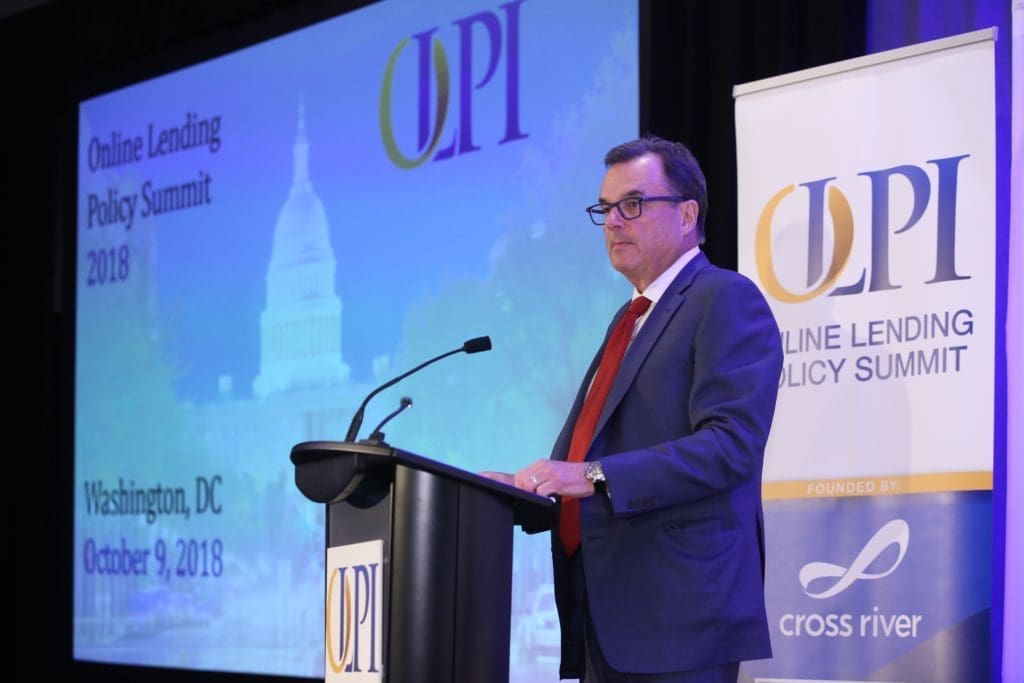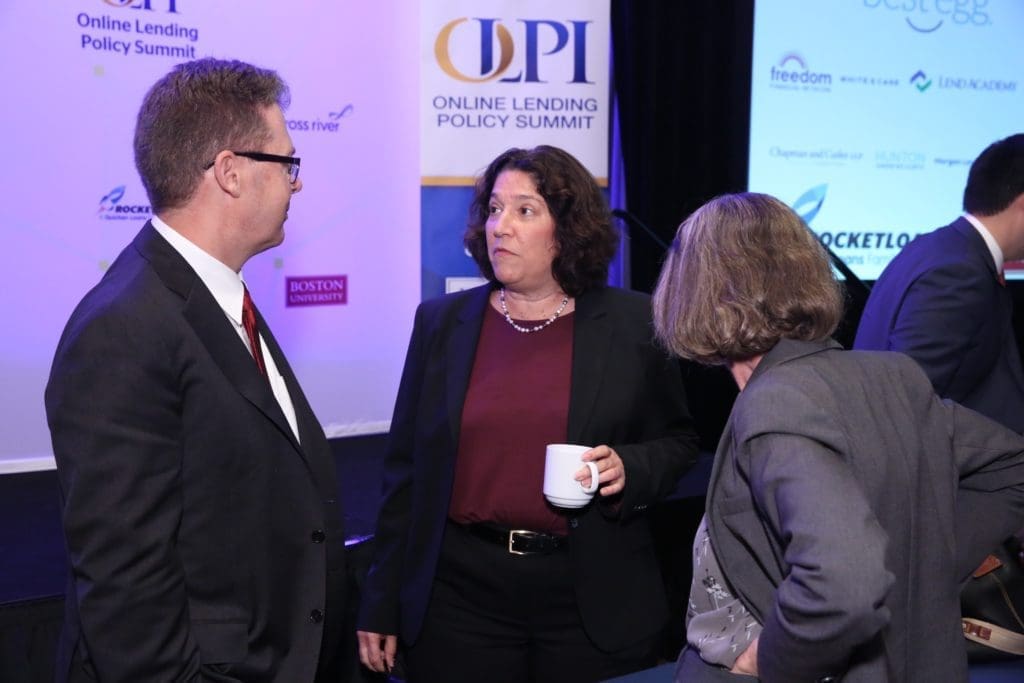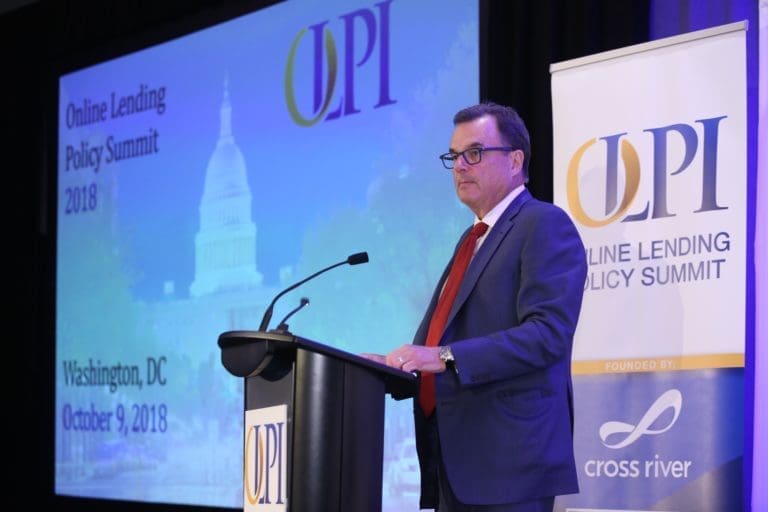
Last week I was in Washington DC to attend the third annual Online Lending Policy Summit. This is the annual get together in Washington of the Online Lending Policy Institute where regulators, lawmakers and the industry come together to discuss regulatory frameworks and responsible innovation.
The big topic of the day was the OCC’s Special Purpose National Bank Charter also known as the Fintech Charter. The topic was laid out for the audience by the first keynote speaker, Grovetta Gardineer, the Senior Deputy Comptroller for Compliance and Community Affairs at the OCC. She talked about the history of the OCC going back to 1863, with the National Banking Act, when the dollar supplanted state currencies as the sole currency of the United States, a revolutionary idea back then. Ms. Gardineer reaffirmed the authority of the OCC to introduce a national fintech charter and talked about how companies should proceed if they are interested. While she would not comment on specifics she did say that the OCC is currently having preliminary conversations with fintech companies but no formal application has been received yet.
The new head of the CFPB’s Office of Innovation, Paul Watkins, talked about the importance of the regulatory sandbox concept. He was one of the architects of the Arizona fintech sandbox and he is bringing that knowledge with him to Washington. He talked about the two main tools to help facilitate innovation at the CFPB: their trial disclosure program and the no action letter. The only recipient so far of a CFPB no action letter was Upstart so it was fitting that Alison Nicoll, General Counsel at Upstart, came on stage to direct the Q&A after Mr. Watkins presentation. He said he would like to see increased cooperation between states and the federal government when it comes to sandboxes. He also said it is very rare to see fraud occur within a sandbox as fraudsters tend not to want to enter a collaborative relationship with a regulator.
Congressman Gregory Meeks (D-NY) is a senior member of the House Financial Services Committee and he talked about the political environment in Washington. He said that even with the polarization in Washington today there is some bipartisan agreement on reforms needed to support fintech. He said that the Madden Fix bill he co-sponsored with Congressman McHenry (R-NC) is stuck in the senate and will likely have to wait for the next congress for any further action there. But studies have shown that the Madden decision has hurt low income people in terms of access to credit. He emphasized that access to capital should not be a political issue.
Craig Phillips is Counselor to the Secretary of the US Treasury and was responsible for their recent 222-page report on fintech. He talked about many of the highlights of the report. In particular he discussed the current regulatory framework in this country and how it is making us less competitive globally. We must reduce regulatory overlap because our fintech companies have a huge disadvantage over their counterparts in other countries. He said that online lending platforms are bringing new people into the financial system particularly young people who prefer to business online.

The most controversial speaker of the day was Maria Vullo, the Superintendent of the New York State Department of Financial Services. Her office has filed suit (twice) against the OCC over the fintech charter and she is an outspoken critic on the concept of fintech sandboxes. I commended her for coming because she was certainly not the most popular person in the room at this event. Not surprisingly, she talked about the importance of state regulators and the fact that the states have always been the sole regulator of non-depository institutions. A national fintech charter would change this precedent. Ms. Vullo gave us a simplistic version of events that led to the financial crisis but she lost me when she then went and compared what was happening back then to what is happening in fintech today. I can see very little parallels – the overall size of the fintech lending market is small, there are no credit default swaps for personal loans and average loan sizes are so much smaller. Not to mention the fact that securitization only makes up a portion of the overall market.
There were several panel sessions as well as some interesting breakouts also happening throughout the day. I spoke on a panel discussing the Treasury report and why it was important for fintech.
A lot of ground was covered at the event it became clear that the need for financial innovation is agreed upon by all parties. But there are very differing views on how these new ideas and concepts should be regulated. While at the federal level there is a lot of support for the online lending space, at the states it is a different story. It was useful, though, to get many of the decision makers in the same room for an open discussion. Kudos to all the folks at OLPI for putting on a great event.


